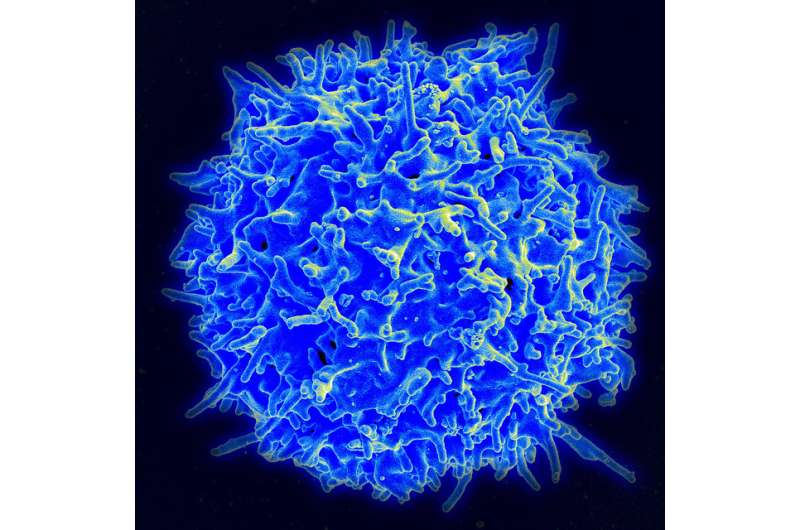A recent study published in the New England Journal of Medicine has reported promising outcomes for a novel CAR T cell therapy known as obecabtagene autoleucel (obe-cel) in adult patients with relapsed or refractory CD19-positive B-cell acute lymphoblastic leukemia (ALL). The Phase Ib/II FELIX trial, co-led by researchers at The University of Texas MD Anderson Cancer Center, observed a significant response rate among participants, showcasing the potential of this innovative treatment.
Study Overview
The FELIX trial primarily aimed to evaluate the efficacy and safety of obe-cel in treating adult patients facing advanced B-cell ALL. The key findings from the trial can be summarized as follows:
| Measurement | Outcome |
|---|---|
| Response Rate | 76.6% |
| Complete Remission Rate | 55.3% |
| Median Event-Free Survival (EFS) | 11.9 months |
| Overall Survival (OS) | 15.6 months |
In total, 127 evaluable patients participated in the trial. The results indicated that the median EFS was 11.9 months, with EFS rates of 65.4% at six months and 49.5% at 12 months. The median OS was 15.6 months, with 80.3% and 61.1% estimated OS rates at six and twelve months, respectively.
Safety and Tolerability
Regarding safety, the study demonstrated that patients endured minimal immunotoxicity, which often complicates CAR T cell therapies. While some patients experienced low-grade cytokine release syndrome (CRS) and neurotoxicity, severe reactions were rare. Specifically, only three patients exhibited CRS symptoms of grade 3 or higher, while nine experienced immune effector cell-associated neurotoxicity syndrome of grade 3 or higher. These observed side effects were consistent with findings in previous studies, and no new adverse effects emerged.
The demographic characteristics of the trial participants revealed a median age of 47 years, with 52% male patients. The racial composition included 74% white, 12.6% Asian, 1.6% Black, and 11.8% classified as unknown.
Importance of Minimal Residual Disease (MRD)
Another crucial aspect of the study was the observation of significant clearance of minimal residual disease (MRD) post-obe-cel treatment. In patients diagnosed with blood cancers, MRD refers to a small number of cancer cells that persist after treatment and can lead to relapse. Among the 68 high-risk patients, where bone marrow blasts exceeded 5% prior to lymphodepletion, a complete remission was achieved. Of the 62 patients with available MRD data, 58 exhibited MRD negativity after therapy.
| MRD Status | Outcome |
|---|---|
| MRD-Negative | 58 Patients |
| MRD-Positive | 4 Patients |
This indicates a strong correlation between the depth of MRD-negative remission and clinical outcomes. Dr. Elias Jabbour, U.S. lead investigator of the study, plans to elaborate on this correlation in the upcoming presentation at the American Society of Hematology (ASH) Annual Meeting.
Future Directions
The recommendations for clinical practice suggest that obe-cel has the potential to be the standard of care for B-cell ALL patients. Furthermore, the findings encourage further exploration into the treatment protocols that could enhance patient responses and mitigate treatment resistance.
- Long-Term Efficacy: Future studies should aim at establishing long-term follow-ups for assessing the durability and overall effectiveness of the therapy.
- Patient Selection: Identifying genetic predispositions that may influence treatment response could personalize therapy further.
- Combination Therapies: Investigating the efficacy of combining obe-cel with other modalities might enhance patient outcomes.
“The data from the FELIX study highlights the potential of CAR T cell therapies like obe-cel in providing effective treatment options for patients with limited options,” said Dr. Jabbour.
Conclusion
The successful outcomes of the FELIX trial signal a significant advancement in the treatment of adult patients with relapsed or refractory B-cell ALL. With the FDA's approval of obe-cel, the landscape of treatment options is poised to change dramatically, paving the way for improved patient care and quality of life.
References
Claire Roddie et al, Obecabtagene Autoleucel in Adults with B-Cell Acute Lymphoblastic Leukemia, New England Journal of Medicine (2024).
Lifespan.io














Discussion